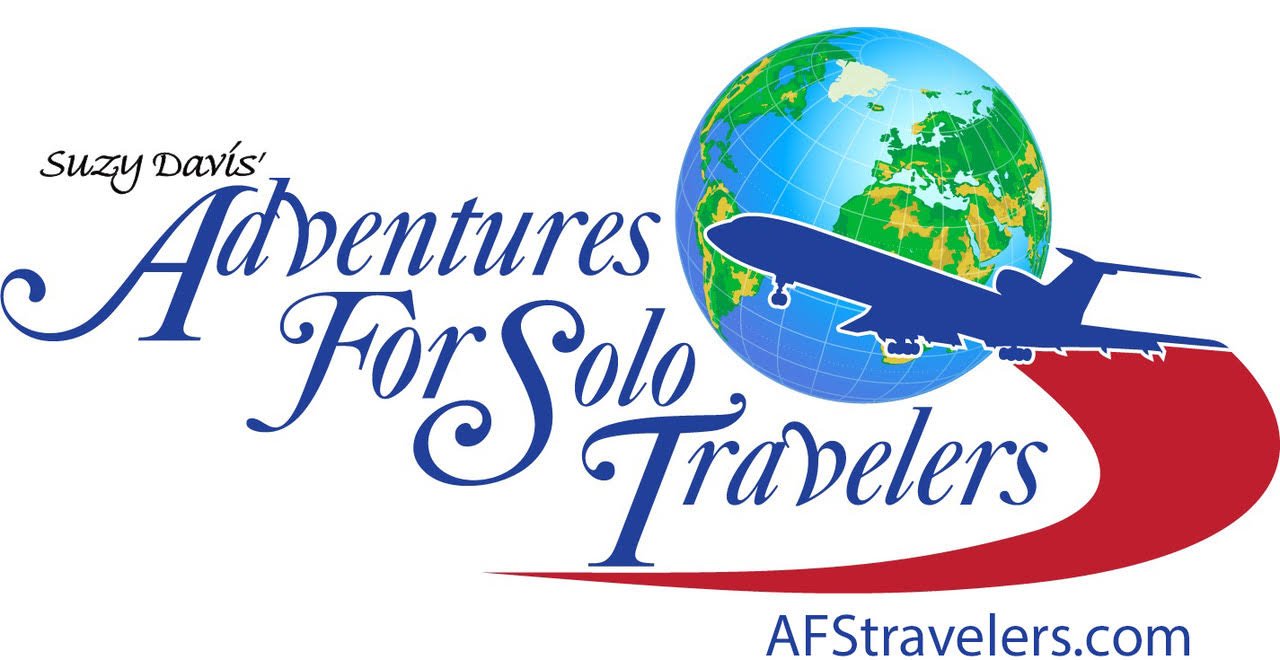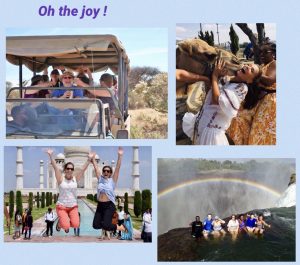SOLO TRAVEL TOURS - What is the state of Solo Group Travel today? How will singles travel groups move forward? USTOA has some data on this. Let’s take a look… USTOA Survey: 2021 Will Most Likely See Travel Recovery by Matt Turner Aug 28, 2020 11:37am "The United States Tour Operators Association (USTOA) released new findings from surveys of its Tour Operator Active Members and destination management Associate Members about post-COVID-19 plans for recovery and resumption of business—and not much of it is good. According to the survey, just over one-third (38 percent) of active members have seen an increase in bookings in the last 60 days; another third (38 percent) have seen no change in bookings during this timeframe, with the remaining 24 percent reporting a decrease in bookings. In the June survey, two-thirds of tour operators reported an increase in bookings over the previous 60 days. As a follow-up, USTOA asked when new passengers are booked to travel, based solely on bookings made in the last 60 days. Active Members reported the following: While 10 percent have bookings made for the third quarter of 2020, another 19 percent of responding Active Members report that they have new passenger bookings scheduled for travel in the fourth quarter of 2020 One-third (33 percent) say they have received bookings for Q1 2021 travel Three-fourths (76 percent) report passenger bookings for second quarter of 2021 Eight out of ten Active Members (79 percent) are reporting travel bookings for the third quarter of 2021 Half (52 percent) report new bookings being made for Q4 2021 travel Roughly one-third (31 percent) of members report new passenger bookings for 2022 Best tour companies solo travelers destinations update: Nearly three-fourths (73 percent) of current Active Member traveler bookings are to “international” destinations, the remaining 27 percent
SOLO TRAVEL TOURS –
What is the state of Solo Group Travel today? How will singles travel groups move forward? USTOA has some data on this. Let’s take a look…
USTOA Survey: 2021 Will Most Likely See Travel Recovery
by Matt Turner
Aug 28, 2020 11:37am
“The United States Tour Operators Association (USTOA) released new findings from surveys of its Tour Operator Active Members and destination management Associate Members about post-COVID-19 plans for recovery and resumption of business—and not much of it is good.
According to the survey, just over one-third (38 percent) of active members have seen an increase in bookings in the last 60 days; another third (38 percent) have seen no change in bookings during this timeframe, with the remaining 24 percent reporting a decrease in bookings. In the June survey, two-thirds of tour operators reported an increase in bookings over the previous 60 days.
As a follow-up, USTOA asked when new passengers are booked to travel, based solely on bookings made in the last 60 days. Active Members reported the following:
While 10 percent have bookings made for the third quarter of 2020, another 19 percent of responding Active Members report that they have new passenger bookings scheduled for travel in the fourth quarter of 2020
One-third (33 percent) say they have received bookings for Q1 2021 travel
Three-fourths (76 percent) report passenger bookings for second quarter of 2021
Eight out of ten Active Members (79 percent) are reporting travel bookings for the third quarter of 2021
Half (52 percent) report new bookings being made for Q4 2021 travel
Roughly one-third (31 percent) of members report new passenger bookings for 2022
Best tour companies solo travelers destinations update:
Nearly three-fourths (73 percent) of current Active Member traveler bookings are to “international” destinations, the remaining 27 percent of traveler bookings are to North America (U.S., Canada and Mexico).
USTOA asked when Active Members anticipate restarting operations in destinations around the world. The results are as follows:
Africa: Nearly a half (43 percent) of tour operators foresee restarting operations in the first quarter of 2021, while one-quarter (27 percent) anticipate returning to the region in the second quarter of 2021.
Antarctica: A quarter (24 percent) of respondents with itineraries to Antarctica anticipate resuming operations in the second quarter of 2021, showing a significant change from the June survey where 0 percent of members said they had anticipated returning within that same timeframe. Roughly 18 percent of Active Members anticipate a first quarter 2021 return.
Asia: Six in 10 Active Member respondents (60 percent) foresee a potential return to Asia between the first and second quarters of 2021.
Australia, New Zealand and the Pacific Islands: The most selected response for a potential operations restart in the region was the third quarter of 2021 at 33 percent. This reflects a significant shift in timing compared to the June Active Member survey, where more than half (53 percent) anticipated resuming operations to the region during the first quarter of 2021.
Canada: More than one-third (38 percent) of Active Members see the second quarter of 2021 as the potential return to operations in Canada, while another quarter (28 percent) anticipate returning to the region in the first quarter of 2021. Results from the survey conducted in June reported that nearly half (48 percent) of respondents were optimistic in returning to Canada between September and October 2020; now only 10 percent anticipate a return within that timeframe.
Central America: The most selected response for a potential operations restart in the region was the first quarter of 2021 at 52 percent, jumping up from 33 percent in the June survey.
Europe: More than one-third (37 percent) of respondents anticipate resuming operations in Europe in the first quarter of 2021, reflecting a big shift from the survey conducted in June, which reported that a similar 33 percent anticipated a September 2020 return. None of the current survey respondents anticipate returning to Europe next month.
Mexico: One-third (32 percent) of tour operator respondents with programs in Mexico anticipate returning in the first quarter of 2021, showing a 12 percent increase from the June research report.
South America: Almost half (44 percent) of tour operators with programs to countries in South America anticipate resuming operations in the first quarter of 2021, showing a 14 percent increase compared to the survey response in June. Another 19 percent anticipate resuming operations within the second quarter of 2021.
United States: Respondents showed new optimism for an August 2020 return to business, with the response jumping to 34 percent, compared to 11 percent reported in the June survey.
DMO Update
USTOA asked destination management Associate Members when their destination anticipates opening tourism to North American travelers. Almost half (46 percent) of the respondents selected “other,” which included a select number of countries that are open now with testing and quarantine restrictions, but a majority noted “too early to determine” (up from 32 percent in the June survey). According to the same DMO Associate Member survey, roughly 14 percent anticipate a January 2021 opening for North American tourism, while another 14 percent expect to open in April 2021 or beyond.
The survey also reflected a sizable change in the expectation of a September 2020 reopening for North American travelers. In June, 17 percent of DMO respondents anticipated reopening to North America next month; now, that number has decreased to 5 percent.
Product Types and Group Size
DMOs named FIT as the tourism product they believe will come back the soonest and strongest as their destination begins to reopen to tourism. Small groups (less than 26 passengers) was ranked second, nature/adventure in third, followed by luxury, medium groups (20-50 passengers), large groups (50-plus passengers) and river cruises. Ocean cruises was ranked to come back last.
When asked what group size limitations may be in place once tourism from North America is open, more than a third of USTOA DMO Associate Members selected it was “too early to determine” for both coaches (38 percent) and gatherings (37 percent). For coaches, 16 percent responded that size limitations may be up to 20 people maximum, while 9 percent noted potential group size limitations of up to 50 people, and 8 percent selected up to 10 people. Roughly 5 percent responded that coach limitation could be set at up to 15 people, while another 5 percent selected a limitation of up to 100 people. Only 2 percent selected coach size limitations of up to five people maximum. The remaining 19 percent selected “other.”
When it comes to health and safety practices, an overwhelming 91 percent of DMOs say they will use their own governments’ health and hygiene protocol. More than half (57 percent) reported that they will rely on World Tourism Organization (UNWTO)/World Health Organization (WHO) guidelines, while 31 percent noted that other health organizations guidelines will be utilized.
The Active Member survey was completed on August 14, with a 64 percent response rate of Active Member brands. The destination management survey was completed on August 19, with a 49 percent response rate of DMO Associate Members.
Source USTOA.


